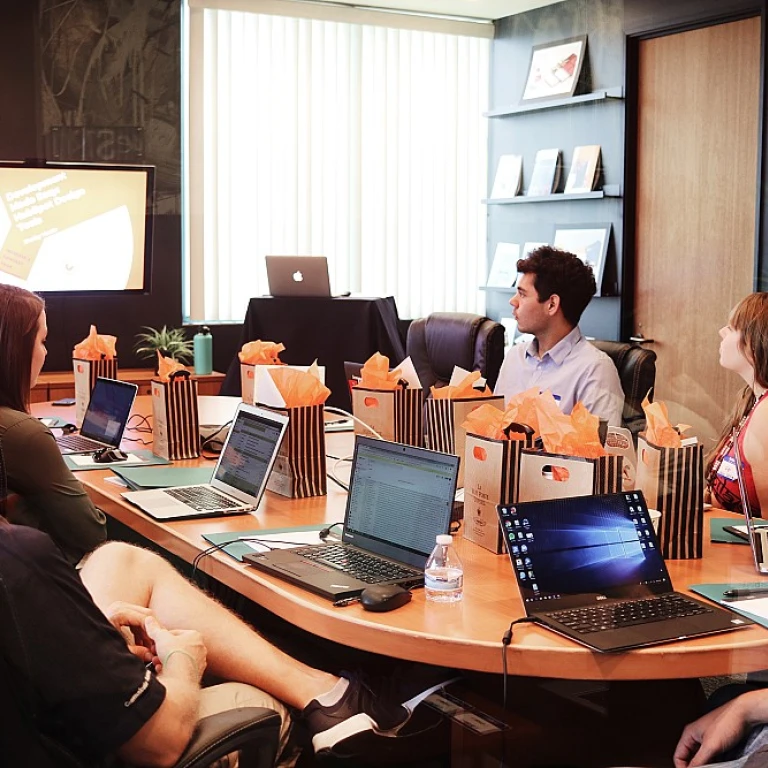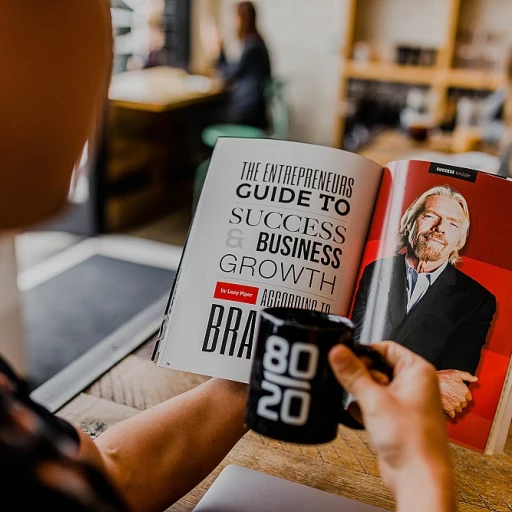
Understanding the Role of Peer Interviews in Mentoring
Exploring the Integral Role of Peer Interviews in Mentoring
In the realm of professional mentoring, peer interviews serve as a pivotal element, bridging the gap between candidates and the company's team culture. The inclusion of peer interviews within the mentoring process can significantly enhance the way candidates perceive their career development and fit within a company. These interviews act as an excellent platform for both the mentor and mentee to evaluate critical factors like communication skills, emotional intelligence, and overall team synergy. Peer interviews not only help in assessing the candidate's aptitude but also provide an avenue for them to understand the dynamics of the potential work environment they'll be part of. It encourages an exchange where both sides can explore shared values and identify the best collaboration strategies, pivotal in fostering a productive mentoring relationship. Moreover, peer interviews in mentoring are instrumental for hiring managers. They offer insights into how the candidate will work with existing team members, allowing mentors to better tailor their guidance and support. Through this process, questions are crafted with the intent of revealing a candidate’s potential contribution to the company culture and team goals. By focusing on the right questions during a peer interview, mentors can help candidates gain clarity on their strengths and areas for growth in alignment with the job role. When a peer interview is approached with a conscious mind, it not only benefits the candidate's understanding of their fit within the business but also helps the interviewers read between the lines of standard interview queries, thus paving the way for a successful mentoring journey. For further insights, you can explore essential questions for a successful coaching interview.Key Elements of Effective Peer Interview Questions
Crafting Questions that Spark Honest Conversations
When constructing peer interview questions, the ultimate goal is to provoke insightful dialogue. Questions should be open-ended, allowing team members to express their thoughts and experiences freely. This helps uncover how the candidate might fit into the team and align with the company culture. Effective questions will help interviewers gauge communication skills and emotional intelligence, crucial for assessing how well a candidate may integrate with existing team dynamics.
Focusing on Questions that Assess Key Skills and Attributes
Each question should strategically evaluate the candidate's relevant skills, their problem-solving capabilities, and their ability to function within a team. Hiring managers often focus on skills assessment during this process, as it provides key insights into whether the candidate will meet job requirements and complement existing team members.
- Role-specific Inquiries: Tailor questions to probe into skills specifically required for the job. This can include scenario-based questions that reflect real-world challenges the candidate is likely to face.
- Behavioral Questions: Ask about past experiences to predict future behavior. For example, “Can you describe a time when you had to work through a difficult team project?” prompts candidates to reveal how they handle challenges.
- Value Alignment: Questions that evoke discussions about personal values help determine if the candidate shares the company's ethos and will thrive in its environment.
Incorporating Feedback to Refine the Interview Process
Receiving feedback from both candidates and interviewers on the peer interview questions helps refine the process over time. Continuous improvement ensures the questions remain relevant and beneficial for both the hiring process and the candidates involved.
By focusing on crafting questions that spark meaningful conversations, address key skills, and incorporate feedback, mentors can effectively harness the power of fierce coaching in professional mentoring. For more guidance, you can learn more about harnessing the power of fierce coaching.
Common Challenges in Crafting Peer Interview Questions
Addressing Typical Obstacles in Developing Peer Interview Queries
Crafting effective peer interview questions presents several challenges that can impact the hiring process if not addressed thoughtfully. Understanding these difficulties will help you refine your approach to question development. Firstly, aligning interview questions with the specific competencies required for the job can be tricky. It's crucial to ensure that questions effectively assess the skills you prioritize. This challenge underscores the importance of skill assessment to identify the best candidates. Consider designing questions that evaluate both technical skills and soft skills such as emotional intelligence and communication. For instance, inquiries about past teamwork experiences can reveal how a candidate might fit into your company culture. Another common obstacle is ensuring questions peer address diverse aspects of the role, such as day-to-day responsibilities, integration with existing team members, and alignment with company values. It's beneficial to prepare peer interviews that balance broad, open-ended queries with more focused, practical ones. Open-ended questions encourage candidates to share insights about their work and thought processes, providing a fuller picture of their capabilities. Developing sample answers can guide interviewers to better evaluate candidates' responses. Training team members in recognizing effective communication and potential red flags in answers will further refine the interviewing process. Additionally, consider seeking feedback from hiring managers and current employees who have undergone the process; this insight can reveal gaps in your questions that you may not have anticipated. While crafting questions, it's vital to be mindful of biases or leading queries that might skew candidates' answers. Neutral language encourages genuine responses and a fairer comparison among candidates. For more insights on preparing impactful peer interview questions, see this guide on effective questions for skip-level meetings. Implementing these strategies will enhance both the interview process and the subsequent evaluation of potential candidates, ultimately aiding in a stronger hiring outcome.Examples of Impactful Peer Interview Questions
Examples of Thought-Provoking Questions for Peer Interviews
Crafting impactful peer interview questions is an essential aspect of the interviewing process, which can effectively assess a candidate's fit within a team and their alignment with company culture. The questions posed during a peer interview can lead to rich insights about a candidate's emotional intelligence, communication skills, and their ability to contribute to the team dynamic. Below are some examples of peer interview questions that can provide meaningful insights:- Assessing Team Dynamics: "How do you handle conflict within a team, and can you provide an example of a disagreement you successfully navigated?" This question evaluates a candidate's interpersonal skills and their ability to work harmoniously in a group setting.
- Cultural Fit: "What do you value most in a company's culture, and how have you contributed to maintaining a positive cultural environment in the past?" This question aims to determine if the candidate's personal values align with the company's core values and culture.
- Problem-Solving Skills: "Can you share an instance where you had to think creatively to solve a problem on the team?" An answer to this question offers insight into the candidate's critical thinking and resourcefulness within a team context.
- Communication Proficiency: "Describe a situation where clear communication made a difference in the outcome of a project." This helps assess the candidate's capability to effectively convey ideas and facilitate understanding among team members.
- Adaptability and Growth: "Tell us about a time when you had to adapt to a sudden change at work and the steps you took to manage that change successfully." This question identifies a candidate's flexibility and willingness to embrace evolution within a job role.
Tailoring Questions to Suit Different Mentoring Scenarios
Adapting Questions for Various Mentoring Contexts
Crafting questions that resonate with different mentoring scenarios is crucial for an effective peer interview. A well-structured peer interview can illuminate the candidate's compatibility with the company culture, job requirements, and team dynamics. Here are some tailored strategies for various contexts:- Focusing on Company Culture: To assess how well a candidate aligns with your company culture, consider questions that explore cultural fit and values. For instance, ask about their perspective on the company’s mission and core values, and how they’ve applied similar principles in previous work environments. This approach can help in identifying candidates who will seamlessly integrate with your company’s ethos.
- Evaluating Skill Set: When the goal is to gauge technical or specific skills, root your questions in real-world scenarios where these skills are applicable. Discuss past experiences relating to the skills required for the job. For example, "Can you describe a situation where your problem-solving skills directly impacted a project's success?" Such questions will provide insight into the candidate’s practical knowledge and skill application.
- Assessing Team Compatibility: Tailor your questions to include scenarios that evaluate how candidates work in a team setting. Utilize questions that highlight collaboration and communication strengths. An example question could be, "Tell us about a time when you had to resolve a conflict within a team. What approach did you take, and what was the outcome?" This reveals the candidate's emotional intelligence and ability to maintain harmony in the workplace.
- Judging Emotional Intelligence: Understanding a candidate's emotional intelligence can be beneficial in predicting their interaction with team members. You may incorporate questions that require self-reflection, like "How do you handle stress or feedback from your peers?" This will shed light on the candidate’s self-awareness and interpersonal awareness.
Evaluating the Success of Peer Interviews in Mentoring
Measuring the Effectiveness of Peer Interviews
Evaluating the success of peer interviews in professional mentoring is crucial for both individual growth and the overall success of the mentoring program. It requires a blend of quantitative and qualitative assessments to ensure that the peer interview process is both effective and impactful.- Quantitative Metrics: Consider gathering data on key performance indicators such as the number of successful mentoring matches, satisfaction ratings from both mentors and mentees, and the progression of participants through predefined milestones. These metrics will help in analyzing the effectiveness of the interview process in terms of outcomes.
- Qualitative Feedback: Engage with peers, mentors, and mentees to gain insights into their personal experiences with the peer interview process. Encourage open feedback about the communication strategies utilized, the alignment with organizational goals, and any observed improvements in job-related skills or interview preparation.
- Impact on Company Culture: Reflect on how peer interviews have contributed to shaping the company culture. Effective peer interview questions should support the nurturing of positive relationships, enhancing team dynamics, and promoting a collaborative environment. Observing these changes can provide valuable feedback on the interview’s success.
- Skills Assessment: Regularly review the development of skills that are critical for both individual roles and teamwork. Peer interviews should aim at facilitating candidates' growth in particular areas such as emotional intelligence, communication abilities, and problem-solving skills.
- Ongoing Adjustments: The learning and development field is ever-evolving, so it’s essential to adapt the peer interviewing framework to meet new challenges and expectations. Regularly update the questions to remain relevant to current job demands and the cultural context of your company.













